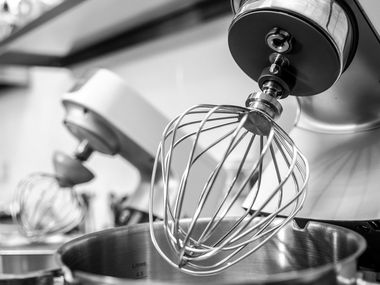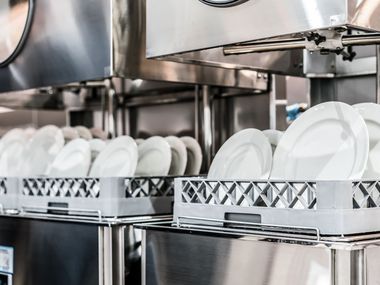Circuit breaker/switch combinations and resettable circuit breakers for switching and protecting loads
Frenzied activity breaks out in a commercial kitchen: an appliance switches off automatically and cannot be reset immediately. If a blown fuse is the reason, it has to be replaced by a new one immediately. But what to do, if a suitable replacement fuse is not readily available?
In addition to damage to the company's image, complaints and expensive customer service interventions can be the result. All this might be due to a minor reason which could have been resolved with the help of a circuit breaker in no time.
Therefore, this minimal additional investment in the equipment of your products is a worthwhile decision that pays off in the long run.

Quick restart
Unscheduled machine downtimes lead to cost-intensive downtimes in industrial kitchen appliances. Compared to fuses, E-T-A circuit breakers have the competitive edge that they can quickly and reliably be reset after tripping.
Time-consuming replacement of blown fuses is eliminated. This saves valuable time and is easy on your nerves, because suitable replacement fuses are not always right at hand.
Avoiding nuisance tripping
E-T-A’s circuit breakers will only trip in the event of a hazardous overcurrent. Circuit breakers do not change their trip characteristics over time and can exactly be adjusted to the load to be protected by means of bimetal calibration.
This is different with fuses, because they age and become faster and faster over time. Subsequently, devices are often switched off unnecessarily. This causes standstills which the customers wish to prevent by all means.

Quick trouble-shooting
If resettable circuit breakers or circuit breaker/switch combinations are used, it is easy to detect that there is a fault in the protected circuit. In the event of an overcurrent, the push button or switch changes into the OFF position. The problem can be clearly identified.
If fuses are used, you need an additional ON/OFF switch, but such a switch remains in the ON position if the fuse blows. Especially with several loads - and therefore several switches - this is a clear disadvantage and a problem in fault finding.
Downloads
Brochures and flyers about commercial kitchen appliances
-
General Brochures
General brochures
-
Circuit breakers instead of fuses 1,005 KB
- Product Flyer
